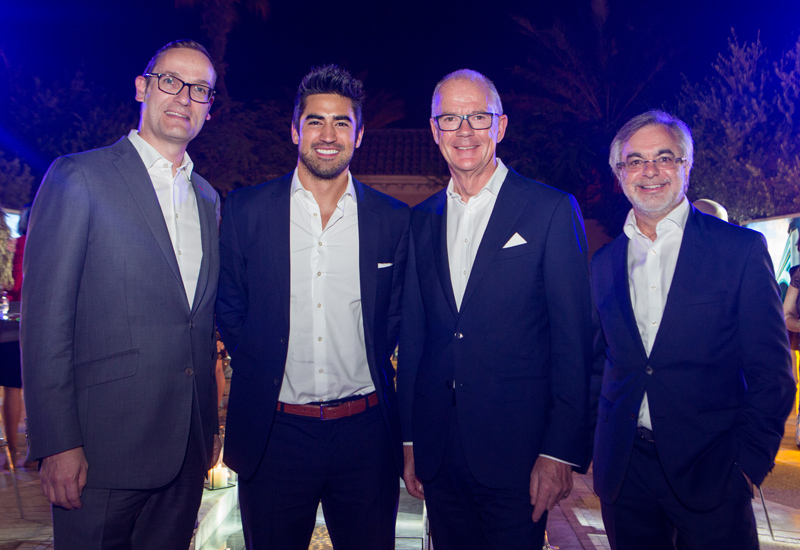Responsible tourism, as the words suggest is, “tourism that takes full account of its current and future economic, social and environmental impacts, addressing the needs of the visitors, the industry, the environment and host communities,” according to the World Tourism Organisation (UNWTO).
While access to different parts of the world has rapidly grown through increasing modes of transportation, social media has shrunk the world with exposure to some of the remote places on Earth via perfectly curated, filter-infused Instagram photos. However, being aware of and examining the consequences of tourism growth, and over-exploitation of indigenous cultures and the environment, has started to take centre stage in the recent years.
Following the 70th session of the UN General Assembly held in 2015, 2017 was proclaimed as the “International Year of Sustainable Tourism Development” with UNWTO as the leading agency to coordinate all the related activities globally, according to a Colliers International report titled Introduction to Responsible Tourism.
Some of the key reasons for the push behind responsible tourism, the report says, include accelerated growth in international travel to developing nations; rising carbon dioxide (CO2) emissions and urbanisation which negatively impacts the local culture and heritage; the need to preserve cultural values and diversity, and the growing need for acceptance and tolerance between visitors and hosts during cross-cultural encounters.
UNWTO estimates that tourism is responsible for about 5% of global CO2 emissions, and accommodation accounts for approximately 20% of emissions from tourism, including energy and water demand and waste management.
The tourism and hospitality industry, especially here in the GCC, through collaboration with established government authorities and non-profit organisations, has started to take note and is trying to implement strategies and changes to minimise the impending damage.
“Sustainable tourism is absolutely important for the survival of the tourism industry, as it is about refocusing and balance,” Carlton Hotels and Suites CEO Hosni Abdelhadi points out.
However, he notes that responsible tourism isn’t limited to environmental conservation alone. Colliers International highlights two other principles under responsible tourism — economic viability and cultural awareness, community involvement and empowerment.
“We’re committed not only to the environment but also keen on creating a positive impact on the community. We ensure the best possible experience for our guests by letting them experience warm hospitality and traditions,” Abdelhadi adds.
The Arabian Travel Market 2018 — Focus on Responsible Tourism
Hospitality and tourism in the GCC, one of MENA’s fastest growing sectors, attracts millions of visitors from across the globe annually and is a particularly resource-intensive industry, points out Simon Press, senior exhibition director, Arabian Travel Market (ATM).
Dubai, which was ranked fourth as an international travel destination in the world according to the annual Mastercard Global Destinations Cities Index, welcomed 15.79 million international guests in 2017, a 7.7% growth from 2016. It was also named the city with the highest international overnight visitor spend, amounting to US$28.50 billion in 2016.
“It is important to highlight that the GCC is one of the fastest growing regional hospitality markets on a global scale and is a resource intensive industry. Its impact on the environment is multi-dimensional, ranging from CO2 emissions, water and energy demand, food waste, and noise and light pollution,” Press notes.
ATM, for its 25th edition, has adopted responsible tourism, including current sustainable travel trends, as the official show theme. The event, which is slated to take place at Dubai World Trade Centre (DWTC) from April 22-25, 2018, will aim to unite travel companies, organisations and key players from the hospitality interested in spreading sustainable practices and ethical methods within the travel industry.
Travellers too are becoming self-aware about the long-term impact of tourism and are revisiting some of their travel decisions while being mindful of the consequences they subject the destinations they travel to.
“The idea that tourism can be responsible seems at odds with the core idea of travel—after all, most leisure travellers want to travel to escape their responsibilities—but in the context of a sustainable industry, responsible tourism presents a strong business case,” Press states.
This change in travelling behaviour is now pushing owners and hoteliers to work together towards cushioning the impact as well.
“Travellers have become very conscious of their carbon footprint and now look to their hotels, tour companies and airlines to do more for the environment,” Press explains. “This growing trend has meant the entire industry has had to look long and hard at how sustainability and a credible social conscience must drive business strategy by reducing for example their water consumption and their greenhouse gas emissions,”.
ATM 2018 will also showcase some of MENA’s commercially successful businesses that have made the rich heritage of the region accessible to tourists, bringing economic development to local communities and helping to preserve their cultures.

| Advertisement |










 Search our database of more than 2,700 industry companies
Search our database of more than 2,700 industry companies









